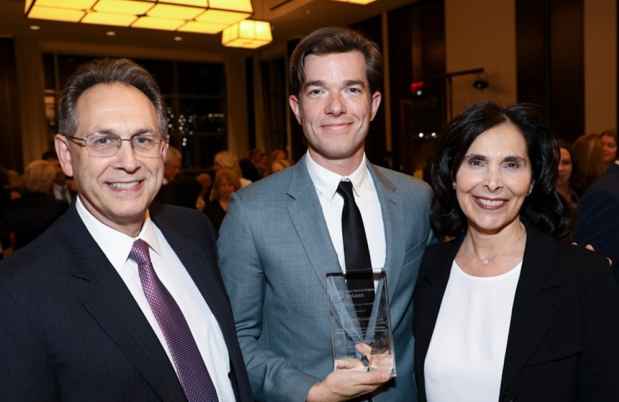During a virtual ceremony on August 7, McLean Hospital received the Excellence in Group Practice Award from the American Psychological Association (APA). The annual award “recognizes outstanding contributions to the practice of group psychotherapy and/or other applied group interventions.”
Cheri L. Marmarosh, PhD, president of the APA’s group psychotherapy division, said that the award recognized McLean for “the incredible amount of group work they provide to diverse patients struggling with eating disorders, personality disorders, depression, anxiety, and trauma.”
Recognized for High-Quality Group Psychotherapy
McLean, she said, is unlike many hospitals in that its “program’s philosophy was based on an integrated individual and group therapy team approach where patients, staff, and family work together to address a wide variety of mental health issues.”
The program includes inpatient, partial hospital, and outpatient levels of care. It also uses integrated individual and group treatments and offers an APA-accredited internship to train new group therapists.
Philip G. Levendusky, PhD, ABPP, McLean’s senior vice president of Business Development and Communications, accepted the award on behalf of the hospital. “The award recognizes McLean’s longstanding institutional dedication to the practice of high-quality group psychotherapy across all levels of care,” he said.
While accepting the honor, Levendusky acknowledged his late colleague, Dr. Joseph Powers. He lauded Powers for helping advance group treatment at McLean.
McLean’s coordinator of Inpatient Group Therapy, Nathaniel Van Kirk, PhD, built on Levendusky’s remarks. “Joe would be very pleased that McLean received this award,” he said, as it reflects the hospital’s “culture of ongoing development through training, supervision, and enduring compassion for the patients we serve.”
An Integrated Approach
Levendusky explained that McLean has long supported integrating group therapies with individualized interventions. “Recently, this has been especially true in our highly specialized treatment programs,” he said. “These programs all utilize empirically validated treatments and rely heavily on group therapies that serve as the foundation of the care delivery model.”

Van Kirk stated that McLean’s group leaders deserve credit for the success of the hospital’s group programs. “Without their passion and clinical expertise, the level of group programming McLean offers would not be possible,” he said.
Long and Rich Tradition
In many ways, the award recognizes McLean’s broad commitment to improving care. “The group therapy program is a core element of McLean’s dedication to improving the lives of people and families affected by psychiatric illness,” Van Kirk said. “Hospital-based group work has a long and rich tradition in psychiatric care at McLean Hospital, which has committed itself to developing a model that will adapt to the needs of our patients across numerous specialty programs and all levels of care.”
Matthew Schrock, PhD, senior staff psychologist at McLean’s Behavioral Health Partial Hospital Program, described the importance of group therapy in his program. “Group work allows us to provide the necessary foundation in skills therapies, such as CBT, DBT, and ACT, so that individual clinicians can focus on building individual skills that are focused on a patient’s specific needs,” he said. “Given the short duration of treatment and the severity of patient presentations, it would not be possible for us to provide such comprehensive, intensive treatment without extensive use of group therapy.”
Peggy Worden, PsyD, explained the importance of the adolescent and young adult groups she coordinates at the 3East Partial Hospital Program. “The DBT groups with adolescents are specifically designed for learning skills and generalizing them in their environments, such as home, school, work, and peer groups,” she said. “The groups function as a safe space to ‘try on’ the skills and get candid, direct feedback from their peers.”
Worden said that the group experience “ties into what they are working on developmentally.” She explained that group members “work through their challenges together” and “learn how to initiate and maintain social connections with peers or significant others and learn how to manage the twists and turns of verbal and non-verbal communication.”
Adapting Group Therapy to COVID-19
Marmarosh praised McLean for how it has adapted to challenges posed by the coronavirus crisis. “During COVID, when some hospitals stopped group treatment completely, they continued to treat patients and shifted to an online telehealth model,” she said.
Schrock explained that McLean was quick to adapt to health and safety measures made necessary by the pandemic. “The Behavioral Health Partial Hospital Program was the first outpatient program online, and we moved a subset of our group programming online,” he explained. Moves like this helped provide ongoing care for McLean patients.
“Group work continues to be the foundation of our program, even in the virtual world,” said Schrock. “I think group work is even more important in these difficult times because it allows patients to connect with peers and get support when so many are experiencing increased isolation due to COVID-19.”
Media Requests
Journalist or member of the media? We are available 24/7 for media requests.



